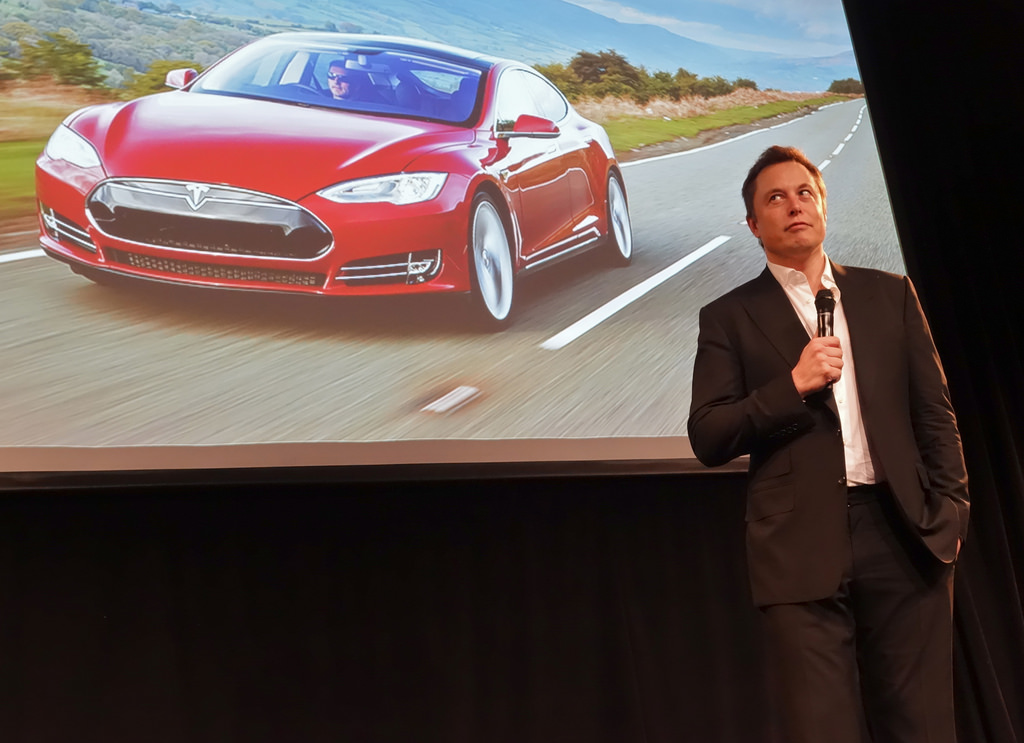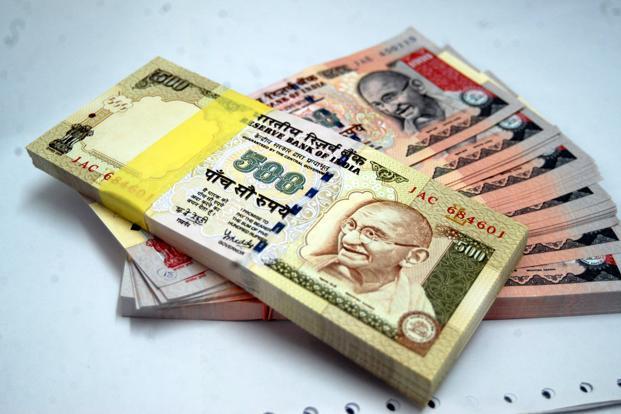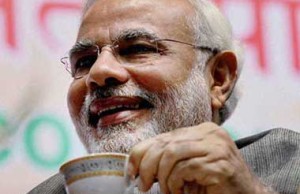Long Way Ahead, Mr. Prime Minister
“Denewala jab bhi deta, deta chappar fad ke”! – ask BJP and they would tell you how true the dictum holds. If BJP expected a victory – they got a lot more than that. In what could be said as a paradigm shift in the Indian polity, the historic result in many ways, India witnessed a decisive win for a political party after a quarter of a century. BJP not only forming a government, they standing firm on their own feet defying the firm hold view of many political scientist that coalition is the integral reality of Indian politics. As India tuned in the morning, she prepared herself for a political miracle in the contemporary times as the flashes humbled staunchest of the Modi critics with “most turned out” elections dishing out the most decisive mandate in the decades. They couldn’t have hoped for more. As for the forlorn congress, more than introspection it’s time of preparing for acceptance. The over-flowing political complacency coupled with ‘taken for granted’ leaders, not to mention the imperious ‘outside-the-government’power structure did cost congress an enduring defeat, indeed the worst in the history. Barring a few honorable exceptions who accepted the lacunae in the government, most of the congress spokespersons were in customary denial mode dubbing the mandate ‘only’ a consequence of over-powered propaganda of BJP whereas the congress ‘lacked’ only in taking their good deeds to the people. To trivialize such a decisive mandate of people is no less than insult of the democracy. It’s only prudent therefore to accept the defeat with all the responsibility and re-think as to how long a forced on dynasty can run a party.The thinking time however, I believe is more for BJP than for Congress, as the real test, or battle so to say begins now.
On crossing the barriers
Many would recall that anointment of Modi as the Prime-ministerial candidate did bring a lot amount of heat to theparty, more from the within than from outside. The proceedings were dubbed fissiparous, so much so that its tallest leaders were seen displeased by promotion. Earlier, one of the long-standing alliance partners divorced from the BJP, calling Modi’s candidature a threat to ‘communal harmony’. Well grounded fear among many of the party supporters were that if Modi indeedproves to be a polarising figure, that would prevent disintegrating NDA from swelling to the amount enough to form the government. As for the critics, the favourite punching bag was his communal presentation. It’s probably the first election wherein parties fought not towin but to defeat one man. The left front, the hypothetical third or the federal front and the congress along with the debutant AAP, though sharing deep differences, clubbed on to one target – to prevent a communally tainted individual from becoming prime minister. The barriers were thus solid and too high to cross, or so it appeared. But as the curtains lifted on the result day,those barriers appeared as if they never existed. With a clear majority on its own, BJP swiftly traversed on the path to victory, an answer that should silence any of the wise critics. The compelling significance of the victory is that the BJP succeeded in registering an emphatic presence in the areas where erstwhile party was present for the namesake. North East for instance and Assam in particular gave an encouraging nod, spreading the acceptability corridors for the party in the areas BJP would have hardly hoped thus spreading its geographical base and presence. It also, for a change performed decently instates like West Bengal and some of the southern States where vote share may not necessarily have translated into seats but were enough to register presence. As for the States where they themselves expected to do well, they practically wiped out the opposition. In Uttar Pradesh for instances, a State with descent Muslim population, BJP comfortably inched to the victory,disseminating the two principal regional parties, one of them a ruling party. A detail analysis from the parties and analyst alike would come in the matter of days but the primary field survey explained on the channels showed that Modi was successful in earning the Muslim votes,especially the young Muslim votes in the State that contributed to such a phenomenal victory. Other states like Maharashtra, Gujarat, and Madhya Pradesh yielded results that practically left congress finding a shelter. In Bihar, theruling party which left the NDA on the secular card, implicitly nurturing their prime ministerial ambitions, now are left to ponder if they can survive with even the State. With such a comprehensive mandate covering length and breadth of country it is very disapproving to view such a mandate only a consequence of‘propaganda model’ or a phenomenon of communal polarization. On the other hand,people squarely rejected the congress on all counts, reducing them to the lowermost tallies invariably expressing their dissent against an ill-functioned government. It is only fitting therefore to say then that Modi has been effective and successful in crossing the barriers that were put into ways by a united opposition while the propaganda argument is unfounded. In democracy,people’s benediction is what counts and considering that, Modi has decisively passed the first test, yet a long way lies ahead.
A Long Way Ahead
“With great power comes great responsibility” – BJP would now be reminded of this apothegm as it sailed swiftly on the tides of hopes and aspirations of millions of people. First time in the recent history people have voted so much in the favour of one party practically handing out all the democratic powers. And so with such a mandate,there is minimal scope for excuses. There is no coalition dharma to be followed and least scope for arm-twisting.There is lot of mess to be looked after and on the top of that BJP came up with towering promises which they will have to slog to keep. The most important task of the government will be to restore the lost track of the economy. The five years of indecisiveness and lethargy, not to mention rampant corruption and negligence from those in power has left economy in ruins. India’s manufacturing has got a beating that has directly affected the employment in the country.Investments suffered equally as they kept on drying with a fragile government and inflation which became a tough horse to tame. The government succumbed in maintaining a strict fiscal discipline that caused burgeoning fiscal deficits that had chain reactions in terms of rising inflations and colliding rupee, the foreign exchanges suffering consequently. A positive take away from this election result is that, probably for the first time country has decisively voted in favour of a right of centre party showing a propensity to accept a growth based economy and displaying an aversion to “dole-politics”. A young nation as ours is hoping for employment rather than entitlements and that indeed is a great encouragement. The government will therefore have to consider strictly the options of doing away with unnecessary subsidies that is denting economy and rather explore the options of investments that would not only strengthen the manufacturing but also create an atmosphere where employment is aimed at skill generation. A big task for Modi will therefore be to have a prudent cabinet committed to shoulder the task. There is no excuse of compromises as alliances compulsions are not the concern. A lot would depend on how well Modi government minimises the legislative burden by taking decisions executively.
Another crucial issue to be seen will be how inclusively Modi government will now work after enjoying such numbers in the parliament. Their manifesto promised a positive co-ordination with other States and Chief Minister in the developmental programs. This indeed is a pragmatic stance by the party which is hoping to form a government, but core issue will be to see how effectively the same party stands to the promise once in the government. It imperative in the current federal set up of the country to factor in all the States as they require States co-ordination in Rajya Sabha as well as in bringing their governance to the ground and it will be a task which the government will have to handle efficiently to deliver the tangible results.
Another major set-back of the UPA,both I and II was remaining exceptionally inert in the international milieu.There have been no substantial foreign engagements since the controversial Nuclear Deal, one of the considered successes of the UPA. That indeed was one wherein, lifting up the world restriction for nuclear trade, India opened up new windows to run her civil nuclear program. But hardly any progress since then, let alone any profits yearning out of the deal. The foreign relations with neighbouring countries have either remained stagnant or worse, they have gone few years back. The conspicuous flip-flop on the Sri Lankan policy for instance has never projected a firm image of India. And in the feeble attempts to appease the alliance partners, the relations with important neighbors in South Asia have suffered. To make issues difficult, Sri Lanka apparently in finding new friend in China. Similar is the case with Bangladesh, Nepal, where petty regional interest dominated the national interests and no concrete policy led to a sorry picture in the immediate neighbourhood. The continuous provocation on borders by China and Pakistan and absence of credible response has led world to view India as a responsive (a slow one) and not a proactive country. India was also seen maintaining surprising silence on major happening such as Arab Spring or even the Syrian Crisis. Its political engagements with other nations have remained stagnant far from being proactive. A major task infront of incoming Modi government will be to renew its political engagement with major nations for a greater collaboration and explore the myriad opportunities that they are offering. Conformity of stable government would enable the centre to be firm at times to take difficult decisions in the greater national interest. Every of the government’s move would now be scrutinized and it is imperative for them to deliver for they have no options of excuses. The government this time has the pool of intellectuals, diplomats as an avenue for expanding India’s reach worldwide. It will now be on the government how effectively they put use of this advantage.
Comprehensive and substantive electoral reforms now have been in pipeline for decades. Particularly targeting their political opponents for lack of political will to carry out these difficult steps while in opposition, it is now to be seen how differently, the“party with difference” behaves, especially when they are enjoying enviable majority in the parliament. Another subtle task for the BJP government to handle would be their commitment to fundamental issues which have been there since the time of Jan Sangha – issue of Uniform or Common Civil Code and article 370. Now with formidable majority in the parliament, they do not have a numerical impediment to push their core issues for which they say they are committed. Here they would face the real test of mettle as the task would be to bring all parties to talk out these issues, as to discuss article 370 has been publicly expressed wish of Modi. To handle delicate and sensitive issues as this, the government will have to be not only cautious but also accommodative as to disturb the democratic fabric of the parliament will be an unforgivable sin.A lot would therefore depend on how the government evolves and how things workout differently in the coming years. There is indeed a lot at stake for the Modi government and deliverance is the only answer to the criticism. One thing that has played to their advantage is people have equipped them with not only stable but a strong and independent government, a privilege one gets very rarely. Therefore, to turn the opportunity into results is the only answer the people would be expecting in return. People, fed up with passive fatalism have decisively voted for a stable government and therefore they have all right to expect and expect more. Getting carried away by the power for the BJP is therefore fatal for they now know the final judgement rests with the people of the country and when they decide, it’s nobody’s game then. They may bask in the glory now, but this is only the first hurdle crossed, and there’s a long way ahead Mr. Prime Minister.
|
← Previous Story Exit Polls 2014 – Expect The Unexpected?
|
You may also like...
1 Comment
Leave a Reply
Cancel reply
-
Advertisement
Copyright © 2020 Indian Nerve. All Rights Reserved.






Dr Hemani Sukhija
June 14, 2016 at 6:42 pm
Very Nice